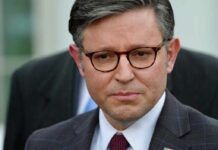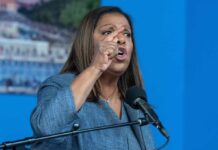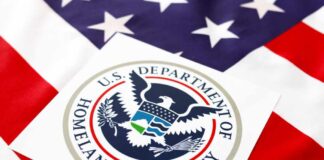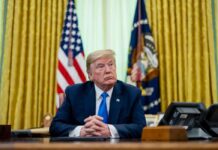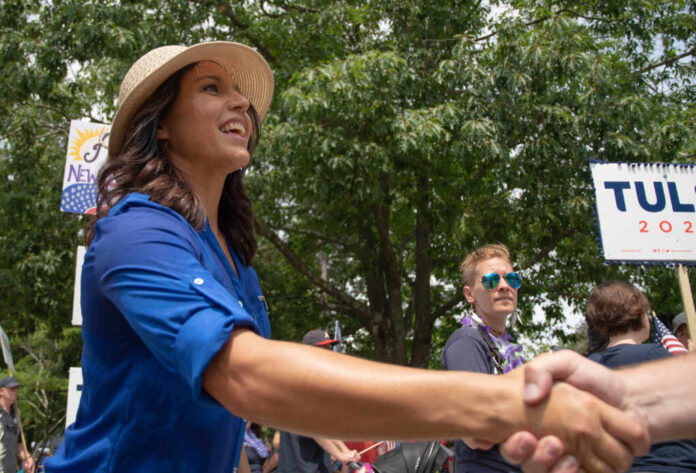
In a move that’s stirring interest and speculation across the political spectrum, President Donald Trump has engaged in substantive discussions with former Rep. Tulsi Gabbard (D-HI) on the future direction of U.S. foreign policy and the Department of Defense’s (DoD) operational ethos under a potential second Trump administration.
Gabbard has parted ways with the Democratic Party and has become a regular commentator among conservative media outlets. She brings a diverse military and foreign policy perspective to her criticisms of U.S. military interventions. Her position critical of unaccountable aid to Ukraine echoes a growing sentiment among America First lawmakers and voters who are devoted to protecting domestic interests above corrupt foreign governments.
Trump’s consultations with Gabbard are not merely about personnel choices but reflect a broader vision for a revamped Pentagon that aligns more closely with his views. During his first term in the White House, President Trump had notable disagreements with Pentagon officials over vital defense issues, including troop deployments and commitments to various alliances.
BREAKING: Tulsi Gabbard held meeting with President Trumphttps://t.co/4KnqbLAAxBhttps://t.co/4KnqbLAAxB
— Jack Poso 🇺🇸 (@JackPosobiec) February 14, 2024
The significance of Gabbard’s involvement extends beyond policy alignment; it is also a strategic move aimed at broadening Trump’s appeal to independent voters. Gabbard’s military service and her critical stance on foreign interventions position her as a credible advocate for Trump’s vision of a more restrained U.S. military footprint abroad. Her popularity among hard-right Republicans and ability to resonate with a segment of the electorate skeptical of overseas engagements could prove invaluable in a general election.
Critics from both parties have raised concerns about the implications of Trump’s foreign policy stance, particularly regarding NATO and the potential for upending longstanding alliances. Trump’s transactional view of international relationships has fueled debates about such an approach’s sustainability and ethical considerations. Yet, for supporters, this pragmatism is seen as a necessary corrective to what they perceive as the unchecked globalism of previous administrations.
As the 2024 election looms, the dialogue between Trump and Gabbard signifies more than just a meeting of minds; it represents a strategic alignment that could reshape the Republican platform and potentially the U.S. approach to global engagement. Their discussions highlight a pivotal moment in the GOP’s evolution as it grapples with its identity and direction in a rapidly changing world.
Trump’s strategy of engaging with figures like Gabbard, who straddle the divide between traditional party lines, indicates a broader attempt to redefine American conservatism. It reflects an acknowledgment that the challenges facing the United States require a coalition transcending conventional political boundaries.
